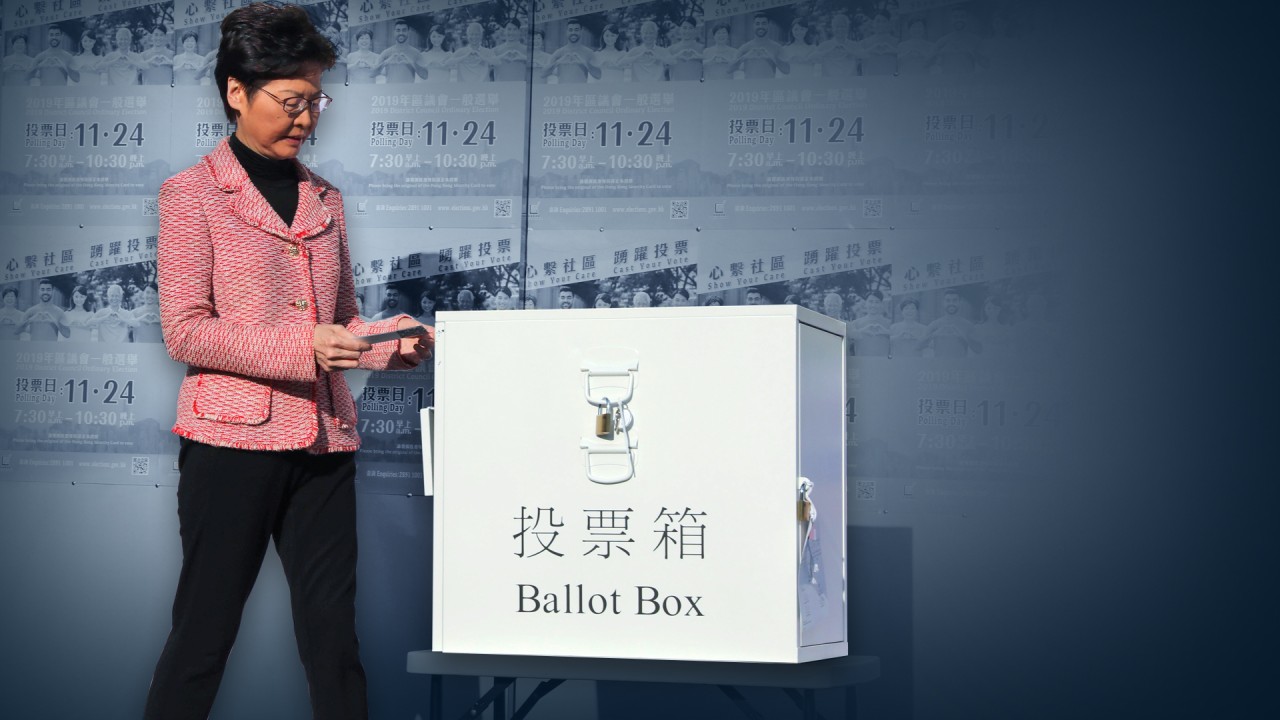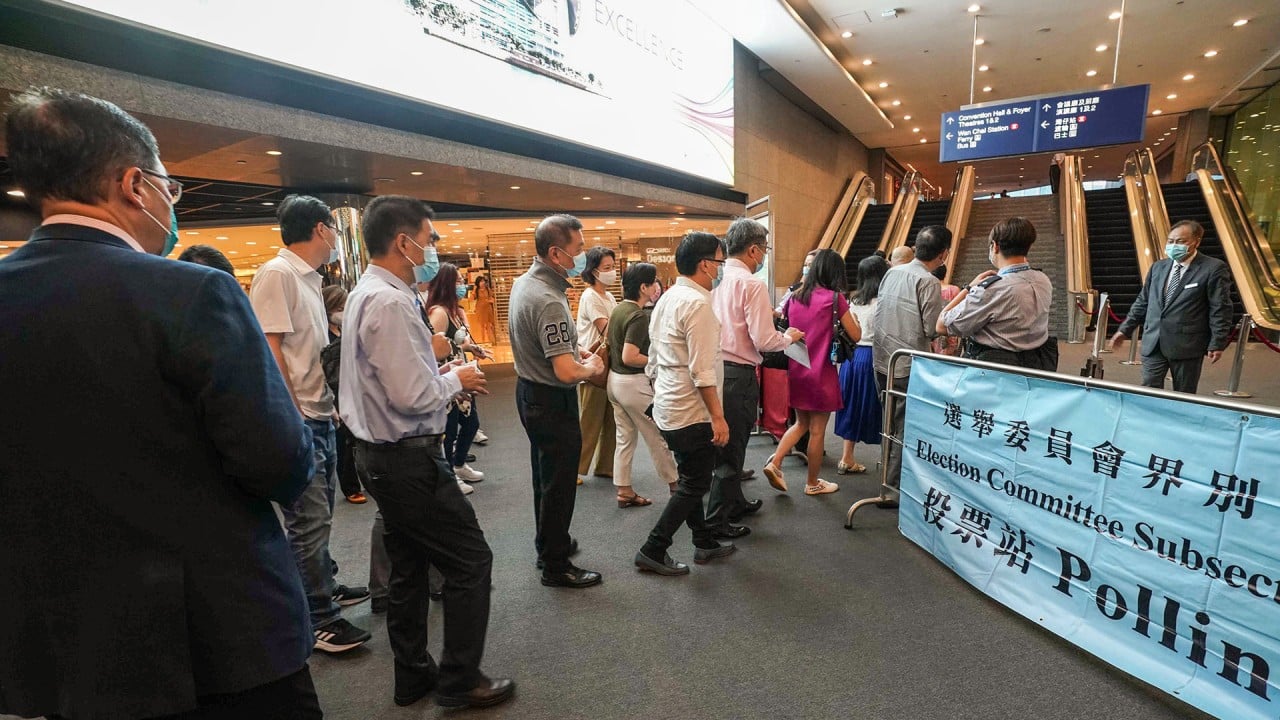
Hong Kong leader Carrie Lam ‘sorry’ for Election Committee voting chaos, pledges to fix problem before Legislative Council poll in December
- Chief executive promises to get to bottom of 14-hour delay that left candidates and staff waiting overnight for results
- Lam says issues will be resolved before December’s election of lawmakers, as organisers blame new electronic registration system, workers on the ground
Responding to a reporter’s question about the weekend’s “apparent problems”, Lam did not hold back in her assessment of the tallying process.
“You are being very kind,” she said. “You said there appeared to be a problem, but there was definitely a problem, a very serious one indeed.
“I am sorry for the problems that arose during the vote counting, causing many candidates to have to hang around at the counting station unable to eat and sleep.”

Some 4,380 votes were cast by 6pm on Sunday, significantly fewer than in past elections, but the full set of results did not arrive until nearly 14 hours later.
In a statement on Tuesday night, a spokesman for the Registration and Electoral Office apologised again and elaborated on the reasons for the delay, saying it was partly caused by voters incorrectly marking their ballot papers.
“As certain subsectors involved many candidates, some voters realised that they had made wrong marks on their ballot papers and requested the re-issuing of new ones,” he said.
“Hence, it took extra time for electoral staff to verify the number of valid ballot papers issued in certain subsectors after the poll closed.”
What you need to know about Hong Kong’s Election Committee
On the temporary suspension of counting in Wan Chai when it emerged that some voting records had not been properly filled out by polling staff, the spokesman said it was a prudent decision to “avoid results being questioned”.
Electoral Affairs Commission chairman Barnabas Fung Wah told the press earlier that delays were caused by an electronic voter register that was being used for the first time, and inflexibility among those tasked with counting the ballots.
The Post has also been made aware of instances of poor communication between staff on the ground, while the handling of questionable voters also contributed to the delay.
Lam said she had been told the outcome could be expected at midnight on Sunday, when she visited the polling station in Wan Chai that morning.

04:21
Explainer: How does Hong Kong select its government?
She said her staff would contact the commission, the independent body responsible for organising the city’s elections, for answers.
“It may be a technical problem, a manpower problem or a training issue,” she said. “Although the Electoral Affairs Commission is an independent body, as the chief executive, I would tell those involved to improve relevant measures for future elections.”
Following Beijing’s drastic electoral overhaul, the original 1,200-member Election Committee, previously only tasked with selecting the chief executive, has been expanded by 300 seats.
It was also given new powers to nominate Legco hopefuls and send 40 people, some or all of whom can be from its own ranks, directly to the 90-member legislature.

There was also a drastic reduction this year in the electorate, falling from more than 240,000 people in 2016 – mainly individuals – to about 8,000, most of whom were corporate voters. Only 4,900 were required to vote in the end, with just 13 of the 40 subsectors contested.
Centrist Tik Chi-yuen was the only one of two opposition-leaning candidates to win a seat, and that only came through the drawing of lots after he and his rival for the last seat in the social welfare subsector received the same number of votes.
The outcome again prompted concerns over whether dissenting voices could still feature among the city’s political establishment, although Beijing and local authorities have insisted an opposition will be allowed as long as candidates are “patriots”.
Hong Kong’s Election Committee set after 14 hours of vote counting; outliers sidelined
Lam reiterated that the changes to the electoral system were designed to ensure that only those deemed patriots could hold positions of political power.
“It did not say a patriot would be shut out because of his or her political leaning or criticisms of the government,” she said. “If they [the opposition] didn’t run in the election in the first place, how can they win?”
She said there was no one-size-fits-all universal democratic system, and Hong Kong’s approach should be judged in the future on whether it had improved the governance of the city and delivered greater economic integration with mainland China.

02:02
Hong Kong’s first political race after Beijing shake-up as Election Committee voting underway
Separately, the chief executive said she would travel to the Sichuan provincial capital of Chengdu on Wednesday for meetings involving officials from the Pearl River Delta provinces, as well as Macau.
Her trip is expected to conclude in the northwestern province of Shaanxi, where the National Games are under way.
Lam will appear at the closing ceremony, where the Games’ flag will be passed to her and representatives from Macau and Guangdong province, which are co-hosting the competition with Hong Kong in four years’ time.

